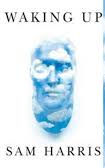




 NEXT
NEXT
 BACK
BACK

Philosophical musings on Quanta & Qualia; Materialism & Spiritualism; Science & Religion; Pragmatism & Idealism, etc.


 Forum
Forum

 Recent Posts
Recent Posts
Post 18. February 25, 2018
Single Substance Spirituality
Spirituality for Scientists
Over millennia, the venerable notion of contemplative “spirituality” has picked up lots of spooky connotations & otherworldly associations, such as folk superstitions & hopeful attempts to communicate with ghosts, plus religious behaviors like servile devotion, holiness, piety, reverence, or saintliness. As a faithful servant of God, you were expected to believe and behave in specific ways that are prescribed in the catechism of your religion, to the exclusion of all others. Some of those quaint ancient “truths” are now scientifically unrealistic, and the antiquated behaviors may seem unabashedly bizarre to unbelievers. Consequently, as traditional religions became out-of-sync with modern life, various sincere people in the 20th century, almost a quarter of American adults, began to refer to themselves as "spiritual but not religious". Which usually meant that they believed in a loosely-defined deity, or some amorphous spirit realm, but not in the outmoded legalistic creeds of their former "faith".
For the purposes of this essay on a non-traditional notion of spirituality, try to purge your mind of any prejudices about the meaning of the word. Most of what you already know about spirituality is actually Maya1. For example, the Christian/Muslim doctrines about the role of Faith in a spiritual life, are a smokescreen to blur the lines between empirical facts and hypothetical fictions. Traditionally, faith & reason2 have each been considered to be sources of justification for religious convictions. But when specific beliefs come into conflict, the only way to reconcile is to agree on mundane reasons for believing. Unfortunately, spirituality is inherently subjective, and difficult to discuss rationally, so reasonable dialogs often descend into enraged browbeating. Which is why the early Deists rejected frozen faiths and scriptural dogmas. They decided to supplement their spirituality with rational dialogue & empirical evidence, when necessary and where possible, and with BothAnd tolerance for the varieties of human opinions.
Many of those early Deists were Cartesian dualists3, since they couldn’t imagine any continuity between Mind & Body. But modern Science has found no gaps between the mathematical Quantum realm of reality, and the material macro world of our senses. So it seems as if the physical phenomena that trigger our senses are constructed from metaphysical building blocks no more substantial than abstract numbers4. That’s one reason why Neo-Deists — who are typically well-versed in scientific knowledge, and have lost faith in scriptural dogma — have been forced to adopt some kind of monistic worldview. My own Enformationism thesis, an updated form of Panpsychism, proposes that the physical world is constructed, from the bottom up, of the immaterial mind-stuff that we now know as Information. Which can also be interpreted to mean that “it’s all spiritual”.
Most of our time is spent in activities directed toward obtaining the basic necessities of life, such as food & shelter. But Spirituality is not concerned with care of the body. So, a spiritual person occasionally withdraws from the rat-race of daily life by turning away from mundane & prosaic, particular & physical things, and inclining toward exotic & poetic, holistic & metaphysical values. That retreat may be out into nature, or within the soul, but its goal is to fulfill the highest of Maslow’s hierarchy of human needs (see next page).
Post 18 continued . . . click Next


"Spirituality remains the great hole in secularism, humanism, rationalism, atheism, and all the other defensive postures that reasonable men and women strike in the presence of unreasonable faith."
Sam Harris, Waking Up
1. Maya :
Buddhist term translated as "pretense" or "deceit" that is identified as one of the 20 unwholesome mental factors within the Mahayana teachings. In this context, it is defined as pretending to exhibit or claiming to have a good quality that one lacks.
2. Faith vs Reason
click here for popup
3. Cartesian Dualism :
Dualism is an ancient concept that was deeply rooted in Greek thought. However, long before that, the ancient scriptures taught that mankind was made in God's image and that Adam needed the spirit breathed into him before becoming a living soul.
Descartes concluded that his own mind was more real than its percepts. So, he reconciled the primacy of Mind with the prevalence of Matter by asserting that the immaterial mind and the material body, while being ontologically distinct substances, causally interact.
Spinoza resolved the same paradox by proposing that there is only a single substance, of which all things are merely different forms. He called that primal stuff “God”, but in modern terms it could just as well be Energy, or in my terms : EnFormAction.
Note :
Famous Atheist Sam Harris practices meditation as an integral part of his spiritual life. But he’s not following the Buddhist religion, with its many god-like figures and saints. He merely borrowed their well-developed techniques of introspection.
Once you remove the folk religion trappings from Buddhism, what you have left is basically Deism, or Daoism, or any other freethinking philosophical worldview.
4. Mathematical Reality :
Normally, we think of mathematics as an unreal abstraction from material reality. But Quantum science now describes a world in which Reality is an actualization of an immaterial Mathematical metric. The metric is a field of values by which we measure reality. In other words, it’s a code from which we can extract meaning.
Faith versus Reason :
As a source of spiritual truths, Faith is based on the assumption that some people have access to occult knowledge (gnosis) that is unavailable to rational inquiry. But when real world applications of those supernaturally revealed “truths” contradict each other, people of good-will attempt to reconcile them based on rational interpretations. That’s why Constantine convened a series of ecumenical councils, beginning in 325AD, to resolve passionate internal disputes about how to interpret & apply their received scriptures*.
However, when reasoning together failed to settle several of the problems, and to restore peace within Christendom, those “spiritual” leaders heatedly called each other heretics**. They then decided who was right, not by prayer, but by majority vote {political power, not rational persuasion), and in some cases burned their former brethren at the stake for the the crime of choosing to believe a different truth.
After centuries of further violent disintegration of the Catholic faith, and following the emergence of empirical Science, Deists decided that fallible faith and errant scriptures were not such good guides to true beliefs after all. So they based their new spirituality on observations of the creation, and the pragmatic use of mundane Reason, which is content to work with partial truths. So, when evidence & reason fail to reveal absolute incontrovertible Truth, tolerance of diversity is deemed better for all than politically mandated unity.
* But first, they had to decide which of the dozens of scriptures would be accepted as God’s Word. As a result of their inability to agree, each of the major branches of Christianity includes different sets of scriptures in its Bible : Eastern Orthodox Christians, the Church of the East, Anglican, Old Catholic, Roman Catholic, Egyptian Coptics, and hundreds of Protestant sects.
https://en.wikipedia.org/wiki/Biblical_canon
** Heresy = wrong choice






 NEXT
NEXT
 BACK
BACK




 Recent Posts
Recent Posts


